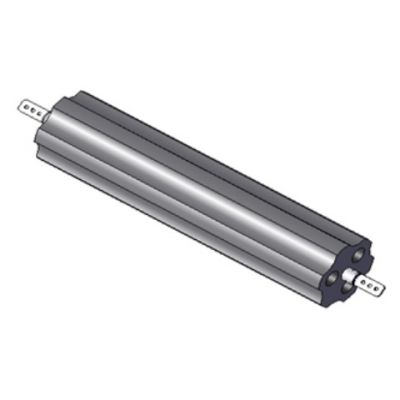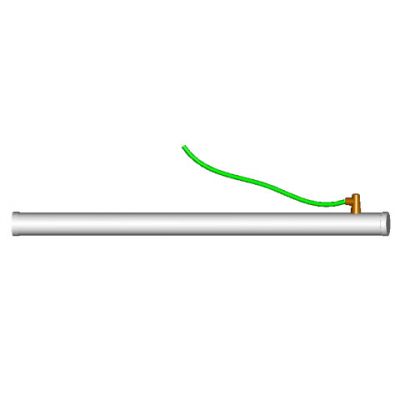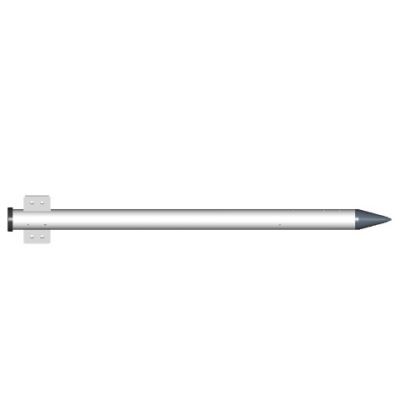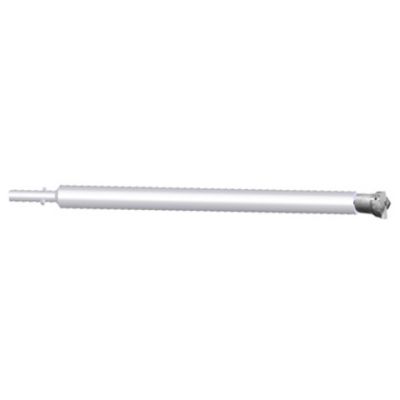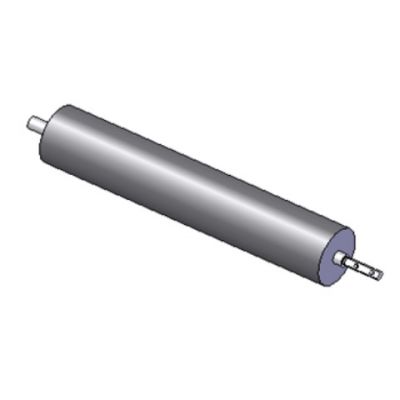ZGDH-I-3 Ion Low Resistance Grounding Modules
Product code : 1490068354
The ZGDH-I-3 Ion Low Resistance Grounding Modules are a kind of grounding body based on nonmetallic materials, being composed of conductive and stable nonmetallic minerals and electrolytic materials, which can be used as the lightning protection grounding of buildings (structures), static protective ground, AC working earthing, DC working earthing, protective earthing, and grounding bodies for other purposes.
Features Mechanism:
The current scattering area of the grounding body itself is increased; the contact resistance between the grounding body and soil is reduced; the moisture-absorption and moisture-retention abilities are strong; the conductive function of module materials is brought into full play; the built-in stainless steel metallic rod of the grounding module contains the special ionic compound, which, through the moisture-absorption and air-stake, can effectively discharge the active ions and currents to the earth, and thus low grounding resistance is obtained and protective effect of the grounding system played.
Technical Parameters:
Overall dimensions: Ф260mm×1000mm (excluding the rod)
.jpg)
Standards Complied:
GB/T21698-2008 Technical Specifications of Composite Grounding Device
Q/75875187-9·6-2011 Grounding Body
Installation, Usage And Maintenance
Installation:
1 The ion low resistance grounding module can be buried vertically or horizontally, with the depth not smaller than 0.6m, and usually 0.8m~1.0m.
2 For a few modules buried in parallel, the distance between them should not be shorter than 4m, and can be appropriately relaxed under special circumstances.
3 Before burying the ZGDH ion low resistance grounding modules, unscrew the screws of liquid inlet holes and permeation holes up and down the rod of modules, except for the red fixed screws, and place the grounding bodies in the preset pit.
4 Screw off the upper cover of the rod, inject about 500ml of water into the rod, and tighten the cover.
5 Sprinkle some water for compaction in layers when backfilling the fine earth grains, to ensure a good contact between the modules and soil.
6 When the rods of ion low resistance grounding modules are in parallel or connected to the earth wire, the welding must be applied, to ensure reliability. Cold solder joints or solder skips are not allowed.
7 The welding slag should be removed from the welded parts, and a layer of asphalt or anticorrosive painted to prevent corrosion of rods.
Usage and Maintenance:
1 The storage module should be maintained at regular times to avoid high temperature, drying, and solarization, with certain moisture.
2 During transportation and installation, the mechanical force should not damage the grounding module. The areas liable to chemical corrosion and high temperature should be kept away when choosing the burying site.
3 Sprinkle some water for compaction in layers when backfilling the soil, and measure the grounding resistance after the low resistance grounding module absorbing moisture for 72 hours.
4 The module should be buried under the permafrost in cold regions.
.png)

